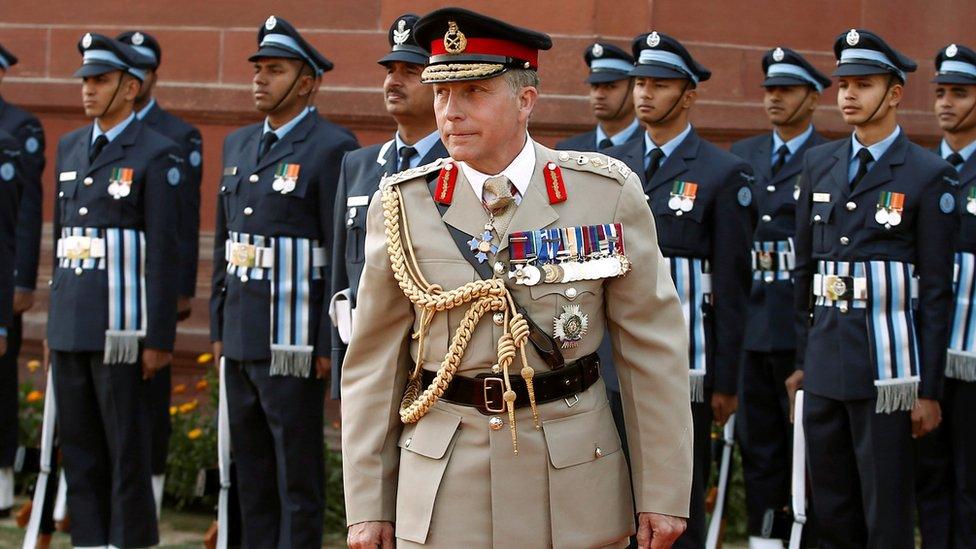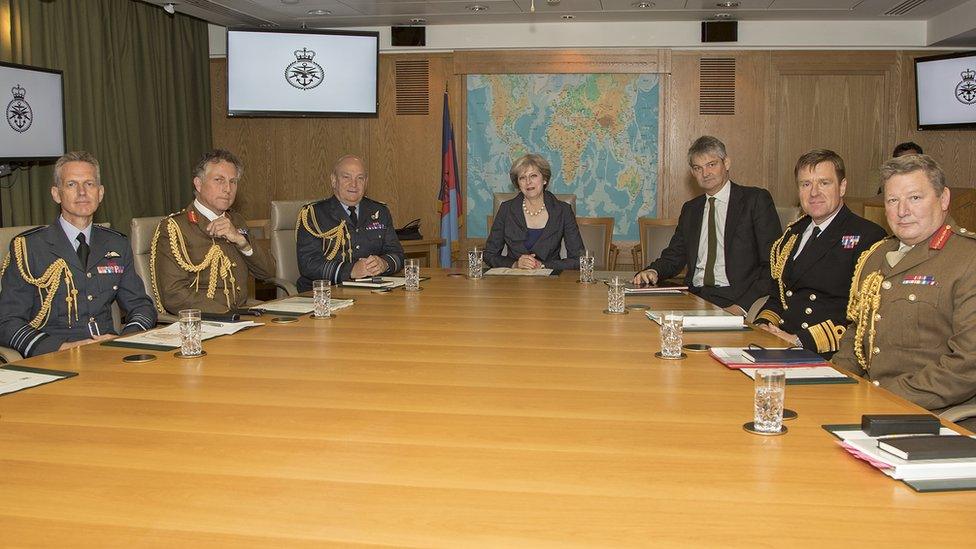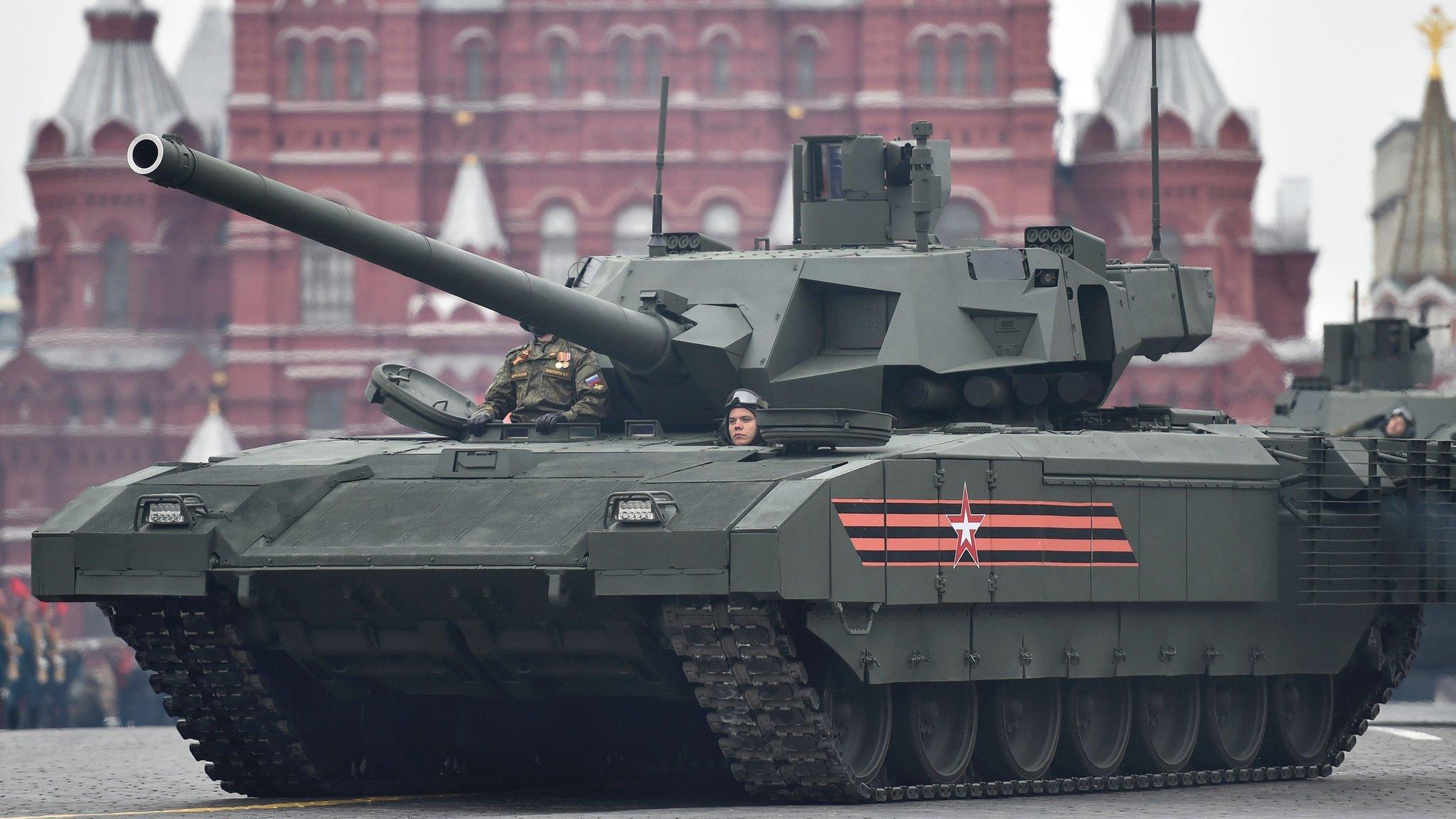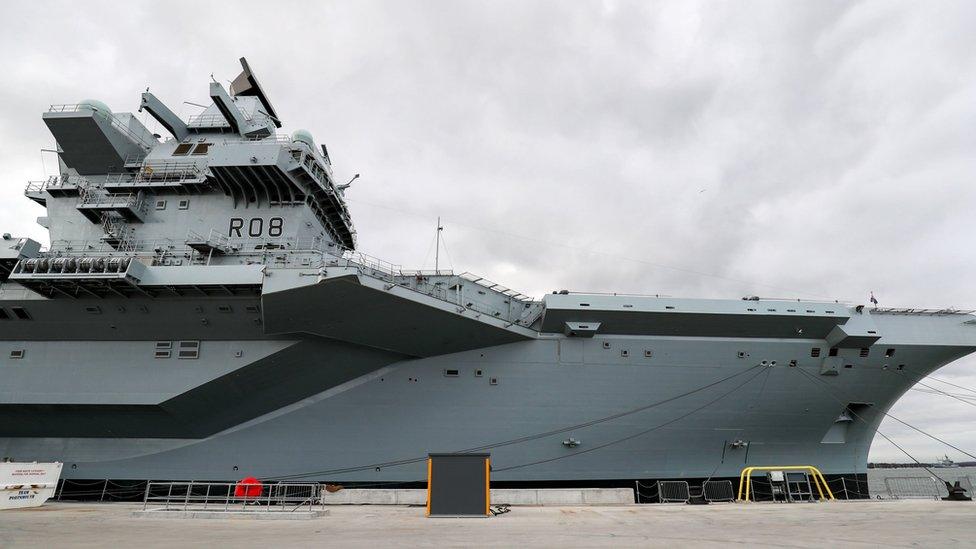General Sir Nicholas Carter named as Chief of Defence Staff
- Published

General Sir Nicholas Carter is to become the UK's new Chief of the Defence Staff - making him Britain's most senior military officer.
Gen Carter, who is the current head of the Army, will succeed Air Chief Marshal Sir Stuart Peach and start the new role in the summer.
The prime minister said Gen Carter was "a superb choice", bringing "vast experience".
She announced an extra £600m for the Ministry of Defence over the next year.
Defence Secretary Gavin Williamson said he was confident Gen Carter would be an "outstanding Chief of Defence Staff at a crucial time for defence... in the face of intensifying threats".
Keen strategist
Gen Carter joined the Royal Green Jackets (now The Rifles) in 1978. He has served as a soldier in Northern Ireland, Germany, Kosovo, Bosnia, Iraq and Afghanistan.
In 2002, he was the director of plans for a US-led taskforce in Afghanistan. The following year, he was involved in planning the invasion of Iraq. He would be the first to admit that those wars did not go according to plan.
Gen Carter was also instrumental in rethinking military strategy.
He was one of the brains behind Provincial Reconstruction Teams, which were used in Iraq and then Afghanistan.
The PRT teams were designed to win hearts and minds of locals by building hospitals and schools - a shift from just relying on brute military force to defeat an insurgency.
Throughout his career, Gen Carter returned to Afghanistan - first as the commander of US and UK forces in the south and then as the deputy commander of the Nato mission.
He has been a strong believer in long-term military commitment, and has been an advocate of getting involved in fragile states before they descend into violence - known as defence engagement with small teams of British troops.
But his time in Afghanistan also brought criticism.
One US general accused him of being "risk-averse". The reality is he was often exposed to danger visiting troops on the frontline.
Other US officers were quick to speak out in Gen Carter's defence. US General Ben Hodges said he was "appalled" by the criticism. Even his enemies could never question his commitment or capacity for hard work.
Radical reformer
Those qualities, and what some friends call "a touch of genius", helped him to rise up the ranks.
Gen Carter became head of the Army in 2014. In that role, he pushed through radical reform.

After becoming the head of the Army in 2014, Gen Carter (second to left) pushed to fight against what he called "intensifying threats"
He restructured the Army and fought hard for resources in the face of what he himself has highlighted as "intensifying threats".
At the start of this year, Gen Carter made a public speech in which he warned of the dangers of a more aggressive Russia.
He was one of the first senior officers sent "over the top" by Defence Secretary Gavin Williamson to make the case for more money for defence.
In the Commons on Wednesday the prime minister announced more money for the MoD, hailed by defence sources as a "stunning win" for the defence secretary.
There will be an extra £600m over the next financial year to pay for four new Dreadnought nuclear submarines, which will come out of a contingency fund.
And there will also be a further £200m made available coming from an "underspend" in other government departments.
Sources close to the defence secretary say the extra cash will help avoid defence cuts in the next financial year.
One official said it was an indication the prime minister and chancellor were "paving the way" to increase overall defence spending. That decision will be made after the MoD has carried out a review of the Armed Forces.
Obvious choice
Gen Carter has his critics at home though, as well as his fans.
I've heard several Army officers complain that he behaves like a dictator, pushing through constant change. Some refer to him unkindly as Kim Jong Carter.
As head of the Army, he has also failed to stop the worrying slide in recruitment - with the regular Army now 4,000 troops below its full strength of 82,000.
While PM Theresa May says the Army has "become more reflective of the society it serves" under Gen Carter, he is himself another product of a privileged public school education.
But he is in many ways the obvious choice. He has had plenty of operational experience, is a strategic thinker and is a lot more comfortable in the limelight than his predecessor.
Supporters of the Royal Navy bemoan the fact that it is now 15 years since they had an officer who led the three services.
They had hoped General Gordon Messenger would be the first Royal Marine to get the job. But once again the position of Chief of the Defence Staff is in the hands of the Army.
- Published12 March 2018
- Published22 January 2018

- Published19 January 2018
